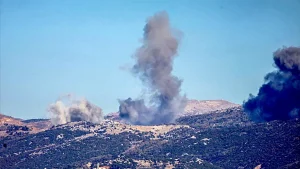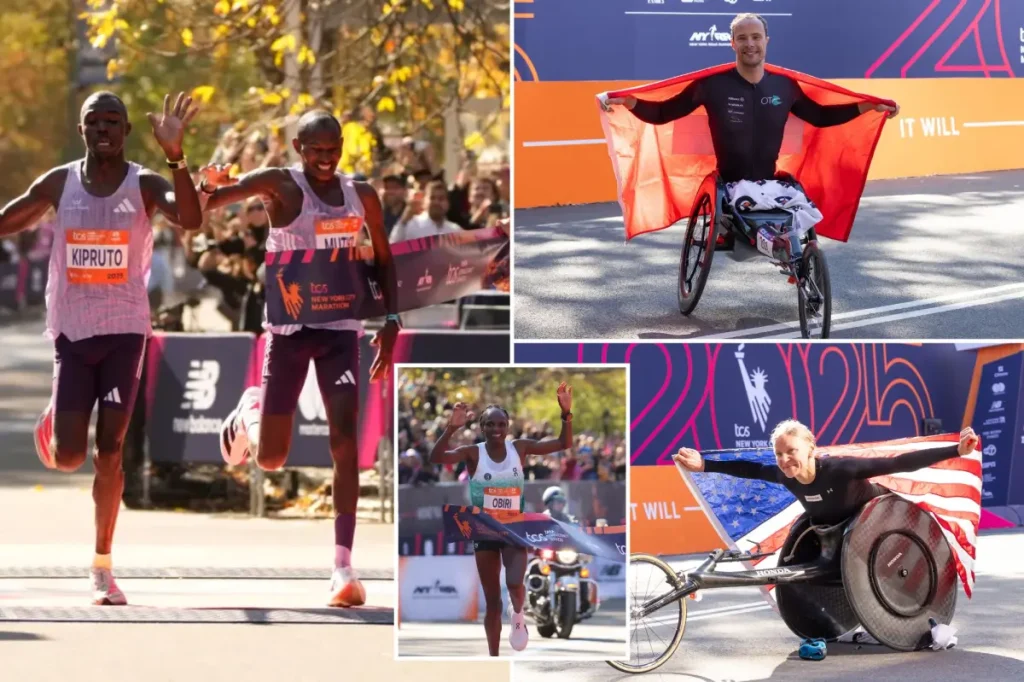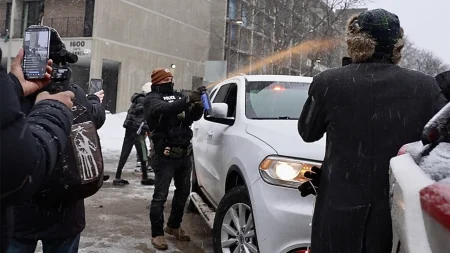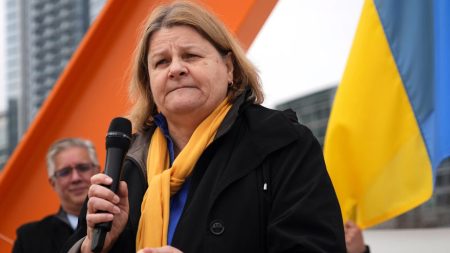Kenyan Runners Triumph at the 2025 New York City Marathon
The 54th New York City Marathon showcased extraordinary athletic prowess as Kenyan runners dominated the prestigious event on Sunday. In a remarkable display of endurance and determination, Benson Kipruto claimed victory in the men’s race while his compatriot Hellen Obiri shattered the women’s course record. The marathon, which winds through all five boroughs of New York City, once again lived up to its reputation as one of the world’s most celebrated road races, drawing over 55,000 participants from across the globe and millions of viewers worldwide. What began in 1970 with just 55 finishers running solely in Central Park has transformed into an international spectacle that captures the human spirit of perseverance and achievement.
In the men’s race, 34-year-old Benson Kipruto crossed the finish line with a time of 2:08:09 in one of the most thrilling finishes in marathon history. The Kenyan champion nearly lost his lead in the final moments as fellow countryman Alexander Mutiso Munyao closed the gap dramatically, finishing with an identical official time. Their photo finish demonstrated the razor-thin margins that separate victory from second place in elite marathon racing. Albert Korir, another Kenyan runner, secured third place with a time of 2:08:57, while British athlete Patrick Dever impressed with a fourth-place finish at 2:08:58. Switzerland’s Matthias Kyburz rounded out the top five with a time of 2:09:55. Though impressive, these times fell short of Ethiopian Tamirat Tola’s course record of 2:04:58 set in 2023, highlighting the challenging conditions faced by this year’s competitors.
The women’s race saw an equally impressive but more decisive victory as 35-year-old Hellen Obiri set a new course record with a remarkable time of 2:19:51. This historic performance shattered the previous record of 2:22:31 established by Kenyan Margaret Okayo in 2003, which had stood for over two decades. Obiri’s victory marks her second New York City Marathon title, cementing her status as one of the greatest distance runners of her generation. Sharon Lokedi secured second place with a time of 2:20:07, followed by Sheila Chepkirui at 2:20:24, creating an all-Kenyan podium. American runners made their presence felt as well, with Fiona O’Keeffe finishing fourth at 2:22:49 and Annie Frisbie taking fifth with 2:24:12. The remarkable times achieved by these elite women athletes demonstrate the continuing evolution of women’s marathon running and the increasingly competitive nature of the sport.
The day began with the wheelchair races, showcasing extraordinary athletes who navigate the challenging 26.2-mile course with upper-body strength and technical skill. Switzerland’s Marcel Hug reclaimed his championship in the men’s wheelchair division after having his three-year winning streak broken last year. His emotional response after crossing the finish line—”It’s so overwhelming to win here in New York. It’s really nice to be back on the podium. It’s great”—captured the personal significance of his achievement. In the women’s wheelchair competition, American Susannah Scaroni continued her dominance by winning for the second consecutive year and third time overall at the NYC Marathon. These wheelchair athletes demonstrate that the marathon spirit transcends physical limitations, inspiring countless spectators with their determination and athletic excellence.
The New York City Marathon route itself tells a story of unity and diversity, much like the city it traverses. Starting in Staten Island, the course weaves through Brooklyn and Queens, touches the southern tip of The Bronx, and culminates in Manhattan’s Central Park—symbolically connecting all five boroughs into one shared experience. Throughout the race, thousands of spectators lined the streets, creating a vibrant atmosphere of support and celebration that has become a hallmark of this iconic event. The diverse neighborhoods through which the runners pass offer a unique glimpse into the cultural tapestry that makes New York City special, with each area providing its own distinctive flavor of encouragement. From the Verrazano-Narrows Bridge to the tree-lined paths of Central Park, the course presents not only a physical challenge but an emotional journey through one of the world’s most dynamic urban landscapes.
The transformation of the New York City Marathon from its humble beginnings in 1970 to today’s global spectacle reflects broader changes in society’s approach to fitness, community, and achievement. What started with just 55 finishers running laps in Central Park has evolved into an event that welcomes over 55,000 participants from all walks of life and every corner of the world. The marathon has transcended sport to become a celebration of human potential, where professional athletes chase records alongside everyday runners pursuing personal goals. As the final competitors made their way to the finish line until the race’s conclusion around 4 p.m., roads across the five boroughs remained closed to accommodate this massive undertaking. The 2025 edition has again demonstrated why the New York City Marathon remains one of the world’s premier sporting events—a testament to the enduring power of human determination and the unifying force of athletic competition.











